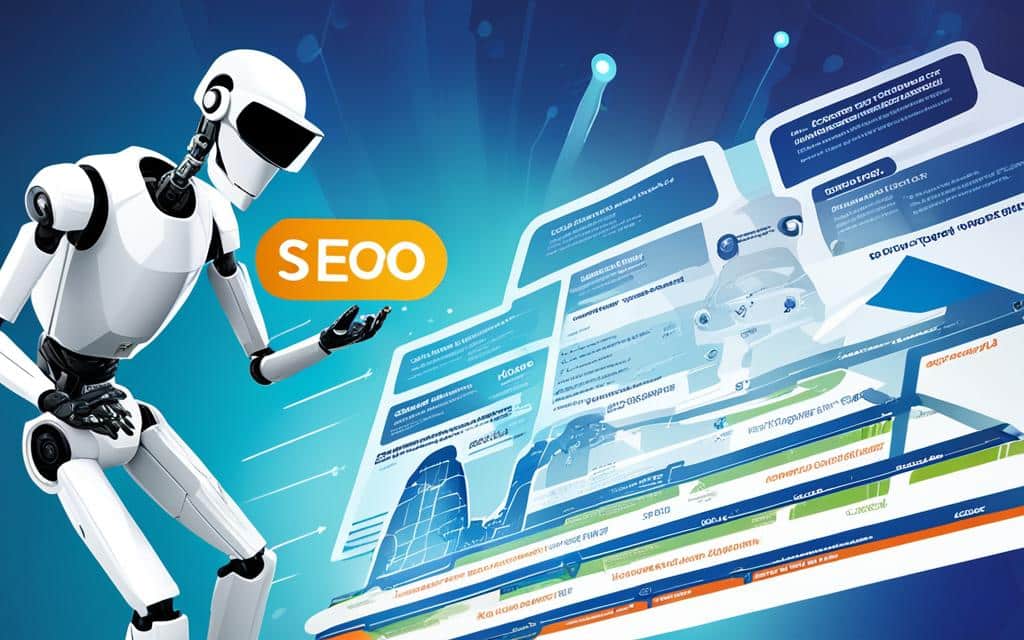Table of Contents
In this comprehensive guide, we will debunk common SEO myths that persist in 2024. With the ever-evolving landscape of search engine optimization, it is crucial to separate fact from fiction and understand the truths that will help you stay ahead in the digital landscape. Let’s dive into the top SEO myths and uncover the reality behind them.
Myth 1: The Google SandBox
One common myth is the existence of the Google SandBox, which suggests that Google automatically suppresses the ranking of new websites in the organic results for a certain period. However, Google has confirmed that there is no such thing as the SandBox. While it may take some time for Google to understand and rank pages belonging to a new site, this is not a deliberate suppression but rather part of the regular crawling and indexing process.
When a new website is launched, it takes time for search engines like Google to crawl and index its pages. During this process, the search engine analyzes the website’s content, structure, and relevance to determine its ranking in the search results. This delay in ranking is not exclusive to new websites but can apply to any site as Google continuously updates its search index.
It is important to note that although new websites might not rank immediately, their pages can still appear in the search results for specific queries. Additionally, the ranking of new websites can be influenced by other factors such as the quality of their content, backlinks, and overall user experience. Therefore, instead of worrying about a non-existent SandBox, focus on creating valuable and optimized content to improve your website’s visibility and ranking.
Myth 2: Duplicate Content Penalty
Another prevalent myth is the idea that Google penalizes websites for duplicate content. In reality, there is no specific penalty for duplicate content. Google distinguishes between manual actions and algorithmic suppression. Manual penalties are imposed when a website violates Google’s Webmaster guidelines, while algorithmic suppression occurs when a page cannot rank due to being caught by an algorithm filter. Copying content from another site may result in algorithmic suppression, but it is not a penalty per sew.
Google’s Webmaster guidelines outline best practices for website owners to follow, including avoiding plagiarism and providing unique, valuable content to users. While duplicating content from other websites can lead to algorithmic suppression, it is not the same as a penalty. Algorithmic suppression happens when Google’s algorithms identify duplicate content and choose not to rank it, prioritizing original and relevant content instead.
It is important to note that there are instances where duplicate content is acceptable and even necessary. For example, e-commerce websites often have similar product descriptions across multiple pages, and news platforms may syndicate content from different sources. In these cases, Google’s algorithm takes into account the intent and context of the duplicated content, aiming to provide the most relevant results to users.
The Impact of Algorithmic Suppression
Algorithmic suppression can have significant consequences for a website’s visibility and organic search rankings. When pages are algorithmically suppressed, they may not appear in the top search results, making it challenging for users to discover and access the content. This can result in lower organic traffic and reduced visibility, negatively impacting the website’s overall performance.
To avoid algorithmic suppression, it is crucial to follow Google’s Webmaster guidelines and create original, valuable content. This includes writing unique product descriptions, crafting original blog posts, and providing well-researched articles that offer insights and solutions to users’ queries.
The Role of Canonical Tags
Canonical tags are HTML tags that indicate the preferred version of a webpage when multiple versions of the same content exist. They help search engines understand the original source of content and prevent potential duplicate content issues. By implementing canonical tags correctly, website owners can signal to search engines which version of a webpage should be prioritized and indexed.
Ultimately, website owners should focus on providing high-quality, original content that meets the needs and expectations of their target audience. By following Google’s guidelines, avoiding plagiarism, and accurately implementing canonical tags when necessary, website owners can navigate the misconception of a duplicate content penalty and improve their chances of ranking higher in search engine results.
Myth 3: PPC Advertising Helps Ranking
Many believe that investing in paid advertising through Google’s PPC program will directly influence organic rankings. However, this is a common misconception. Google’s algorithm for ranking organic search results is separate from the one used for determining ad placements. While running paid advertising campaigns alongside SEO can have other benefits, such as increased visibility and traffic, it does not directly impact organic rankings.
A Google ad placement example that demonstrates how PPC advertising appears on search result pages.
PPC advertising, or Pay-Per-Click advertising, is a model where advertisers pay a fee each time their ad is clicked. Advertisers bid on specific keywords or phrases relevant to their target audience. When a user searches for those keywords or phrases, Google displays relevant ads in the ad placement section of the search results.
While PPC advertising can drive targeted traffic to your website and increase brand visibility, it does not directly influence the organic rankings. Organic search results are determined by various factors such as content relevance, backlinks, and user experience, among others.
It is important to have a comprehensive digital marketing strategy that includes both PPC advertising and SEO efforts to maximize your online presence and drive desired results. By combining the strengths of both strategies, businesses can achieve a balanced approach to attract users through different channels and enhance their overall digital presence.
Myth 4: Domain Age is a Ranking Factor
Some webmasters believe that domain age is a significant ranking factor. However, Google has confirmed that domain age does not directly help in ranking a website. Older websites may have acquired a higher volume of backlinks and established authority, which can contribute to their rankings. It is not the age of the domain itself that influences rankings but rather the factors associated with an older website, such as its backlink profile and overall authority.
While domain age alone may not be a direct ranking factor, it is worth noting that older websites have had more time to accumulate backlinks and establish their authority. Backlinks play a crucial role in SEO, as they signal to search engines that a website is trustworthy and credible. The quality and quantity of backlinks can have a significant impact on a website’s ranking.
“Domain age itself is not a ranking factor. It is the accumulation of backlinks, authority, and relevance over time that can positively impact a website’s ranking.”
The key takeaway is that businesses and website owners should focus on building a strong backlink profile and establishing authority in their niche, rather than solely relying on the age of their domain. This can be achieved through creating high-quality content that attracts natural backlinks, engaging in strategic outreach and partnerships, and consistently providing value to users.
Backlinks – A Key Ranking Factor
Backlinks are an essential aspect of SEO and play a significant role in improving a website’s ranking. They are links from other websites that point back to your site. Each backlink acts as a vote of confidence, indicating to search engines that your content is valuable and trustworthy. The more high-quality backlinks a website has, the higher its chances of ranking well in search engine results pages (SERPs).
When acquiring backlinks, it is crucial to focus on quality rather than quantity. A few authoritative backlinks from reputable websites in your industry can have a more significant impact than numerous low-quality backlinks. Building a diverse backlink profile with a mix of anchor texts and link sources is also essential for demonstrating natural link growth and avoiding any potential penalties from search engines.
By understanding that domain age itself is not a direct ranking factor, businesses can focus on the key elements that contribute to higher search engine rankings. Building a strong backlink profile, providing valuable and relevant content, and establishing authority in your niche are essential steps to improve your website’s organic visibility and drive targeted traffic.
Myth 5: Longer Content is Better
There is a common belief that longer content performs better in search engine rankings. However, the length of content alone is not a direct ranking factor. While some studies have shown that top-ranking pages tend to have higher word counts, this correlation does not imply a causation. Google’s ranking algorithms prioritize content quality, relevance, and user satisfaction. Instead of focusing on word count, it is important to create comprehensive, authoritative content that aligns with user intent.
When it comes to SEO, longer content might seem like the golden ticket to higher rankings, but it’s not as simple as that. While it’s true that longer articles give you the opportunity to cover a topic in more depth, providing valuable insights and information, it’s not the sole factor that determines your search engine visibility.
✨Tip: When creating content, focus on quality over quantity. Make sure your articles are well-researched, informative, and offer value to your readers.
Google’s ranking algorithms are designed to prioritize user experiences. They take into account various factors, including relevance, user engagement metrics, and overall content quality. Therefore, it’s essential to create content that aligns with user intent and satisfies their search queries.
While longer content may have a higher chance of including more relevant keywords and covering various aspects of a topic, it doesn’t guarantee a better ranking. Google’s algorithms are constantly evolving to provide the most relevant and comprehensive search results to users.
Instead of focusing solely on word count, consider these key factors to improve your content’s performance:
- Relevance: Ensure your content is highly relevant to the search queries and the intent behind them.
- Quality: Produce well-written and informative content that offers value to your readers.
- User Engagement: Aim to create content that encourages user engagement, such as comments, shares, and backlinks.
- Comprehensiveness: Cover the topic in-depth, addressing different aspects and providing thorough insights.
- Formatting: Use headings, subheadings, lists, and other formatting elements to enhance readability and user experience.
By focusing on these aspects, you can create content that not only satisfies user intent but also performs well in search engine rankings. Remember, it’s the quality and value of your content that truly matters, rather than simply aiming for longer word counts.
The provided image represents the importance of creating high-quality, relevant content that aligns with user intent. It visually reinforces the idea that longer content alone is not a guaranteed ranking factor, and instead highlights the significance of providing valuable information to readers.
| Myth | Reality |
|---|---|
| Longer content always ranks higher. | Content quality and relevance are the primary ranking factors. |
| Word count alone determines search engine visibility. | Google prioritizes user satisfaction and relevance over word count. |
| Longer articles guarantee higher user engagement. | Engagement depends on the quality, value, and relevance of the content. |
Conclusion
In conclusion, debunking SEO myths and staying updated with the latest trends and best practices in SEO for 2024 is essential for businesses and digital marketers. By understanding the reality behind common SEO myths, they can navigate the dynamic landscape of search engine optimization and position themselves for sustained success.
To achieve this, businesses should focus on creating high-quality, relevant content that caters to their target audience. By producing valuable and informative content, they can establish themselves as authorities in their respective industries and attract organic traffic.
Building backlinks organically is another crucial aspect of SEO. By acquiring high-quality backlinks from reputable websites, businesses can demonstrate their credibility to search engines and improve their search rankings. It is important to prioritize natural link-building strategies and avoid any spammy or manipulative practices.
Furthermore, optimizing user experience on their websites is crucial for businesses to succeed in SEO. Search engines, like Google, prioritize user satisfaction, so it is important to focus on factors such as website speed, mobile responsiveness, and intuitive navigation. By providing a seamless user experience, businesses can improve their search rankings and attract more organic traffic.
To stay ahead in the ever-changing SEO landscape, businesses should also stay adaptive to emerging trends. SEO constantly evolves, and keeping up with the latest trends and algorithm updates is crucial. By monitoring industry developments and staying proactive, businesses can make informed decisions and implement effective SEO strategies.
By following these guidelines and debunking SEO myths, businesses can position themselves for long-term success in the digital ecosystem. Embracing high-quality content, organic backlink building, optimizing user experience, and staying adaptable to emerging trends are key factors for driving meaningful engagement and achieving SEO success in 2024 and beyond.
FAQ
Is there such thing as the Google SandBox?
No, Google has confirmed that there is no Google SandBox. While it may take time for Google to understand and rank pages belonging to a new site, this is part of the regular crawling and indexing process.
Does Google penalize websites for duplicate content?
No, there is no specific penalty for duplicate content. Google distinguishes between manual actions and algorithmic suppression. Manual penalties are imposed when a website violates Google’s Webmaster guidelines, while algorithmic suppression occurs when a page cannot rank due to being caught by an algorithm filter.
Does investing in Google’s PPC program directly influence organic rankings?
No, Google’s algorithm for ranking organic search results is separate from the one used for ad placements. While running paid advertising campaigns alongside SEO can have other benefits, such as increased visibility and traffic, it does not directly impact organic rankings.
Does domain age directly help in ranking a website?
No, domain age does not directly help in ranking a website. Older websites may have acquired a higher volume of backlinks and established authority, which can contribute to their rankings. It is not the age of the domain itself that influences rankings but rather the factors associated with an older website, such as its backlink profile and overall authority.
Does longer content perform better in search engine rankings?
No, the length of content alone is not a direct ranking factor. While some studies have shown that top-ranking pages tend to have higher word counts, this correlation does not imply causation. Google’s ranking algorithms prioritize content quality, relevance, and user satisfaction. Instead of focusing on word count, it is important to create comprehensive, authoritative content that aligns with user intent.







